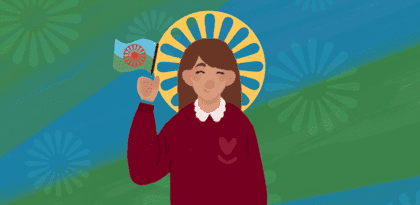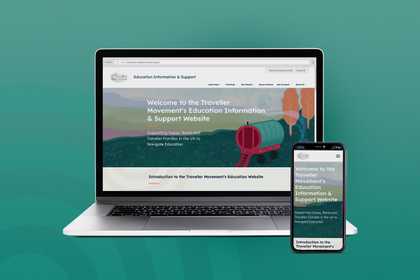A Good Practice Guide for Improving Outcomes for Gypsy, Roma and Traveller Children in Education
11 Aug 2021
This report outlines good practice in the education of Gypsy, Roma and Traveller (GRT) school children. It interviews schools, provides case studies, and includes an overview of the findings from Traveller Movement’s three year education and advocacy project.
Without a shadow of a doubt much more needs to be done to improve the attainment and educational outcomes for Gypsy, Roma and Traveller pupils in the UK. As highlighted by Department for Education, GRT pupils have the poorest educational outcomes of all ethnic groups 1 . As this research succinctly demonstrates, improvements to Gypsy, Roma and Traveller pupil attainment requires time, flexibility, financial and social investment, and a commitment to equality and inclusion.
In this research we highlight seven case studies where children and their families were assisted by the advocacy team. The presenting issues include: racist bullying; unmet Special Educational Needs; school exclusion; admissions and transport; discrimination; attendance and; elective home education. Each case evidences a high level of need by families, the complex and bureaucratic nature of school systems, and the level of advocacy required to address each issue.
What was also apparent from analysing the casework was the level of prejudice and discrimination exhibited by schools, many of whom were unaware that GRT are distinct ethnic groups. In Traveller Movement’s experience, poor responses to racial harassment and weak anti-bullying policies undermines teachers, diminishes trust in pupils and their parents and prevents children from flourishing at school. Unaddressed racist bullying is also a significant contributor to school exclusion and early school leaving.
We also interviewed schools with high GRT populations and good attainment to ask what they were doing to ensure GRT children reached their full potential. These schools consistently provided the following:
• An environment of safety and trust;
• They cultivate an ethos of respect;
• They are committed to access and inclusion;
• They provide some flexibility;
They have high expectations of their pupils; and
• They work in partnership with families, pupils and local communities.
Additionally, the schools communicated openly and respectfully with children and created good working relationships with parents. Throughout this report we use the acronym GRT to mean Gypsy, Roma and Traveller. We do not suggest that Gypsy, Roma and Traveller communities are the same, but this acronym is used for the sake of brevity.
For Full Report, Click Here.


